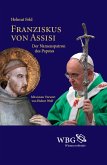When the British thought of themselves as a Protestant nation their natural enemy was the pope and they adapted their view of history accordingly. In contrast, Rome's perspective was always considerably wider and its view of Britain was almost invariably positive, especially in comparison to medieval emperors, who made and unmade popes, and post-medieval Frenchmen, who treated popes with contempt. As the twenty-first-century papacy looks ever more firmly beyond Europe, this new history examines political, diplomatic and cultural relations between the popes and Britain from their vague origins, through papal overlordship of England, the Reformation and the process of repairing that breach.
The most striking features of this text are these: its truly remarkable scope and its ability discern relatively coherent narratives across more than a millennium and a half. It is, therefore, an extremely welcome addition to scholarship on the relationships of the popes in the already rich year ... [a] truly excellent work. It tells a fascinating and little understood story, which will be of interest to specialists and nonspecialists alike. The Popes and Britain should be read by everyone interested in the history of the church in the Atlantic archipelago. Church History





